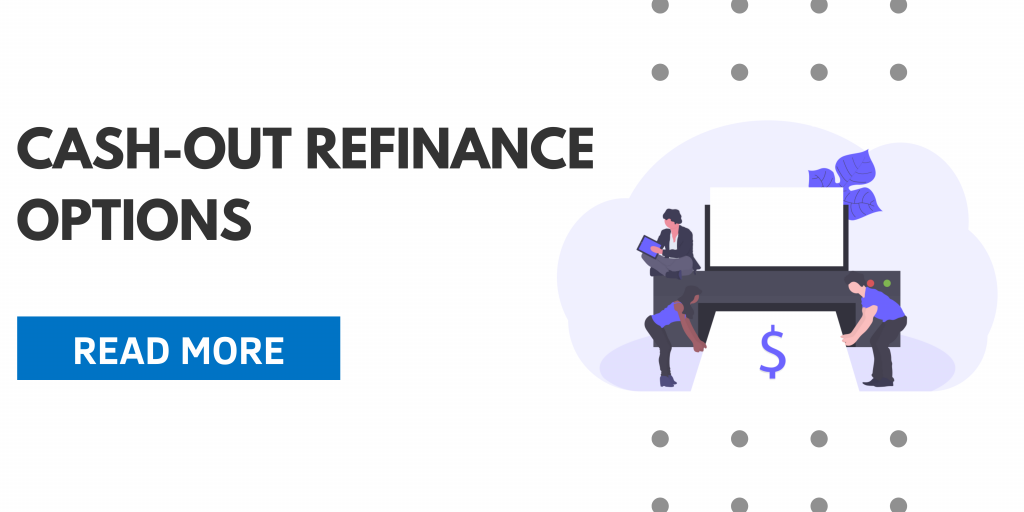Investment properties are a fantastic opportunity to bring in money and become wealthy, but if you want to make the most of your investment, you must select the best loan product. In this article, we’ll go over the different types of loans available for investment property and what factors you should consider when choosing one.
So whether you’re a first-time investor or looking to expand your portfolio, read on for information about the different loan products available!
Invest To Generate an income: Investment Property 101
An investment property is a building or land that you purchase with the intent of generating income. It can be in the form of rental income, through the sale of the property, or both.
While investment properties have the potential to bring in income and create wealth, they also come with specific difficulties. One of the investors’ most significant challenges is finding the right loan product to finance their investment.
Investment Property Loan
An investment property loan is a mortgage taken out on a property that is not your primary residence. Investment property loans are usually more expensive than home loans because they are considered to be riskier.
Lenders typically require a higher down payment and charge higher interest rates for investment properties. However, investment property loans can be a great way to finance the purchase of a rental property or vacation home.
If you plan to own and manage the property yourself, you will need to factor the cost of repairs, maintenance, and vacancy into your budget. However, with careful planning and research, an investment property loan can be an intelligent way to finance your next real estate purchase.
Loan Options For Investment Property
There are various loan products available for investment properties. The type of loan you choose will depend on your circumstances and goals for the investment.
Two Main Types Of Loans Are Available For Real Estate Investors
Conventional Loans
A loan that the government does not back is known as a conventional loan. These loans are available for both primary residences and investment properties.
Private lenders, including banks, credit unions, and savings and loan institutions, usually offer these loans. They typically have fixed interest rates and terms of repayment.
Rental property loans are the most common type of mortgage used to finance the purchase of an income-generating property. Overall, Interest rates on conventional loans are generally lower than other types of loans, making them a good choice for borrowers who can qualify.
Government-Backed Loans
Government-backed loans are loans that the government guarantees. These loans are available for both primary residences and investment properties.
There are several different government-backed loan programs, each with its requirements. The most common government-backed loans are FHA, VA, and USDA loans.
A government-backed loan has insurance or a guarantee from the federal government. It ensures that the lender will retain money if the borrower defaults on the loan.
The most common type of government-backed loan is a mortgage, but there are also programs for student loans, small business loans, and disaster relief loans. In addition, government-backed loans usually have lower interest rates and more favorable terms than private loans, making them a good option for borrowers who might not otherwise qualify for financing.
In addition, because the government is backing the loan, lenders are often willing to provide financing to borrowers with less-than-perfect credit. As a result, government-backed loans can provide access to otherwise unavailable funding.
Other Forms Of Investment Property Loan Options
FHA loan
An FHA loan is a mortgage that the Federal Housing Administration insures. FHA loans are available for primary residences and investment properties, but some restrictions exist.
FHA loans for investment properties are limited to owner-occupied properties with up to four units. In addition, you can only use an FHA loan to purchase a property; you cannot use it to cash out refinance.

VA Loan
A VA loan is a mortgage that the Department of Veterans Affairs guarantees. VA loans are available for both.
Primary residences and investment properties, but some restrictions exist.
VA loans for investment properties are limited to owner-occupied properties with up to four units.
A VA loan is only for people looking to buy a new home and cannot go towards those who want to refinance.
Bridge Loan
A bridge loan is a brief-term loan that gives you access to the equity in your home. This loan is often used by people who buy a new home but have yet to sell their old one.
Your old home backs the loan, and the money from selling your old home pays off. Bridge loans are available for both primary residences and investment properties.
In contrast, bridge loans for investment properties are almost always pricier than those for primary residences. In addition, bridge loans are typically more expensive than traditional loans and have individual terms that last less long.
As a result, bridge loans can be an expensive way to finance an investment property.
Hard Money Loan
A hard money loan is a quick way to get financing for an investment property. Private lenders make hard money loans, typically more expensive than other types.
Hard money loans have higher interest rates and shorter terms than conventional loans. As a result, hard money loans are more expensive in the short term, but they can be a good option for borrowers who cannot qualify for other types of financing.
Home Equity Loan
A home equity loan is a credit line that can receive funding by using your property as collateral. Home equity loans can be used for your primary residence and investment properties.
Home equity loans for investment properties are typically more expensive than home equity loans for primary residences. However, home equity loan interest rates are almost always higher than regular loan rates, and the terms of a home equity loan are much shorter.
As a result, home equity loans can be an expensive way to finance an investment property.
HELOC
A HELOC is a loan that collateralizes your house. You can use the equity in your primary residence or investment property as leverage to take out a HELOC.
HELOCs for investment properties are typically more expensive than HELOCs for primary residences. In addition, a Home Equity Line of Credit often has a steeper interest rate than other loans, and the payback timeline is abbreviated.
As a result, HELOCs can be an expensive way to finance an investment property.
Private Loan
A private loan is a type of loan provided by a private lender. Private loans are typically more expensive than other types of loans.
Private loans have higher interest rates and shorter terms than conventional loans. As a result, private loans are more expensive in the short term, but they can be a good option for borrowers who cannot qualify for other types of financing.
Reverse Mortgage
With a traditional mortgage, you make monthly payments to the lender. With a reverse mortgage, the lender makes periodic payments to you instead. The loan is repaid when the home is sold, or your estate settles after death.
Reverse mortgages for investment properties are typically more expensive than for primary residences. In general, reverse mortgage interest rates are higher than conventional loans, and the loan terms are shorter.
As a result, reverse mortgages can be an expensive way to finance an investment property.
Equity Loan
An equity loan is a type of home loan that uses your property as collateral. For example, you can take an equity loan against your primary residence or investment property.
Equity loans for investment properties are typically more expensive than equity loans for primary residences. The interest rate on an equity loan is usually higher than a conventional loan’s, and the loan terms are generally shorter.
As a result, equity loans can be an expensive way to finance an investment property.
Therefore, when considering what type of loan to get for your investment property, it’s essential to compare the interest rates, fees, and terms of each type of loan. It’s also important to consider the cost of borrowing, which can be higher with some types of loans than others.
Finally, It’s crucial to remember that the kind of loan you get may shape your likelihood of being accepted for a mortgage on the property later down the road. Talk to a mortgage lender about your options if you’re considering an investment property.
How To Choose The Best Investment Property Loan Provider For You
Choosing the best investment property loan provider for you depends on several factors, including:
The Type Of Property You’re Buying
When it comes to buying property, there are many factors to consider. One of the most important is the type of property you’re looking for.
Ultimately, deciding which type of property to buy depends on your budget, lifestyle, and needs. Whatever you decide, make sure you do your research so that you can find the perfect fit for you.
The Amount Of Money You’re Borrowing
When you’re taking out a loan, the amount of money you borrow is an essential factor to consider. A large loan can mean higher monthly payments, which can be challenging to manage.
On the other hand, a small loan may only cover some of your expenses. So it’s essential to strike a balance and ensure you’re borrowing enough to meet your needs without putting yourself in financial hardship.
The amount you’re borrowing should also be considered concerning the interest rate. A higher interest rate will increase the amount you’ll need to repay, so shopping around for the best deal is essential.
Ultimately, the amount you borrow is an important decision that will affect your financial situation for years. Therefore, make sure you carefully consider your options before making a decision.
The Interest Rate You’re Paying.
One of the most important things to consider when dealing with money is the interest rate. The percentage of the money you’re charged for borrowing is called interest, which can significantly impact your finances.
The interest rate you’re paying is essential not only when you’re borrowing money but also when you’re saving it. So, for example, if you’re earning a low-interest rate on your savings account, look for a different version that can offer you a higher rate.
Understanding how interest rates work can help you make better financial decisions and save money in the long run.
The Term Of The Loan
The term, or length, a borrower has to repay a loan is either fixed or variable and can last anywhere from a few months to 30 years. The term, or length, of a loan, dramatically affects the total amount you will pay for the loan and your monthly payments.
For example, a shorter loan term will generally result in a lower interest rate, but the monthly payments will be higher. Although a longer loan term means higher monthly payments, the overall cost of the loan will be lower.
Before selecting a loan term, borrowers should carefully consider their needs and financial situation.
Your Personal Financial Situation
Like most people, my financial situation is a mixed bag. I have some debt that I’m working on paying off, but I also have a decent amount of savings.
I’m still determining when I’ll be able to accomplish this, but it’s something that I’m working towards. In the meantime, I’m trying to be mindful of my spending and make wise financial decisions.
I know it can be challenging, but staying on top of your finances as best as possible is essential. You’ll need to shop around and compare offers from many lenders to get the best deal on an investment property loan.
Talking to a financial advisor or tax professional about the best way to finance your investment property is also a good idea.
Advantages Of Selecting The Investment Property Loan Provider
There are several advantages to selecting the right investment property loan provider. First and foremost, You could receive a lower interest rate on your loan by refinancing.
Additionally, a good loan provider will offer you various repayment options. This way, you can choose the best choice for your financial situation.
Finally, a good loan provider can work with you if you have any problems with your loan. They’ll be able to help you find a solution that works for both you and the lender.
Investment property loans can be complex, so it’s essential to do your research and select a reputable lender. Doing this now will save money and not worry about future financial troubles.
All Things Considered
There are some things to consider when choosing the best investment property loans. The most important thing is to ensure you understand the loan terms and the interest rate you’re paying.
You should also take into account your financial situation and make sure you select a loan term that best fits your needs. Finally, working with a reputable lender who can offer you various repayment options is essential.
By following these tips, you’ll be on your way to finding the best loan for your investment property financing.
FAQ’s
Is having a minimum credit score necessary to invest in real estate?
Although you don’t need a perfect credit score to invest in real estate, having a good credit score will give you better loan approval odds. A good credit score will also help you get better loan interest rates.
No matter what your plans entail, having a good credit score is always beneficial. A high credit score gives you better financing options when investing in property.
How important is the debt-to-income ratio when taking out a loan for an investment property?
It is a vital factor used in considering or when determining whether or not to give you a loan. This ratio compares your debt to your income, giving lenders an idea of how much financial burden you may be under.
The lower your debt-to-income ratio, the more responsibly you are considered by lenders and, thus, the higher your chance of getting a loan.
Can banks provide fix and flip loans property?
Yes, banks can provide loans for those looking to fix and flip a property. Remember, though, that these loans come with heftier price tags than regular mortgages.
As such, you’ll need to carefully consider whether or not you can afford the loan before applying. Additionally, you’ll need a solid business plan to convince the bank to give you the loan.



